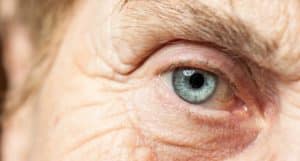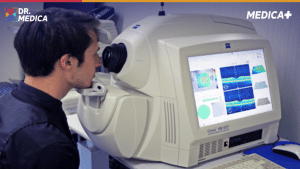Cataract treatment in Turkey Let’s explore together everything related to this treatment, as medical technologies and healthcare advance at a steady pace towards improving patients’ vision and in this time when vision is considered a priceless treasure, cataract treatment comes as an impressive solution to overcome these visual challenges and we will review the concept of cataracts, how they affect vision, and the importance of advanced treatment provided in Turkey.
Advantages of cataract surgery in Turkey
1. Cataract doctors in Turkey have high experience and advanced training in the field of eye surgery and the medical teams in Turkish medical centers offer a high level of experience and competence.
2. Hospitals and medical centers in Turkey use the latest technologies and devices in cataract surgery, which helps achieve accurate and effective results.
3. Medical institutions in Turkey adopt safe and advanced procedures, ensuring patient safety and effective surgery success.
4. Compared to many other countries, Turkey offers cataract surgery services at a reasonable cost, making it an attractive option for patients looking for high quality at an affordable cost.
5. Turkey provides an integrated medical environment, where doctors cooperate with various specialties to ensure comprehensive and integrated care for patients.
6. Patients can enjoy a positive tourism experience in Turkey, where they can explore the rich culture and history while undergoing treatment.
What is the treatment for cataracts in Turkey?
Cataracts occur when opaque spots appear on the lens of the eye (a small transparent disc inside your eye) and these spots usually become larger over time, leading to blurry vision and eventually blindness.
When we are young, our lenses are like clear glass, allowing us to see through them, but as we get older, the lenses begin to become foggy, like bathroom glass, and begin to limit our vision.
Cataracts usually appear in both eyes, but they may not necessarily develop at the same time and may not be the same in each eye.
They’re more common in older people, and can affect your ability to do everyday activities such as driving, as Cataracts can also affect infants and young children.
Cataracts in Turkey and their symptoms
1. Blurry or blurry vision.
2. Sensitivity to bright sunlight or lamps.
3. Glare (seeing a halo around lights), especially when driving at night with car headlights approaching.
4. Changing your prescription for glasses, including sudden myopia.
5. Double vision.
6. Needing brighter light to read.
7. Difficulty seeing at night (poor night vision).
8. Change the way you see color.
How is cataract diagnosed in Turkey?
To determine whether you have cataracts or cataracts, your doctor will review your medical history and symptoms and examine your eyes and your doctor may perform several tests, including:
Visual acuity test:
A visual acuity test uses an eye chart to measure how well you can read a series of letters and your eyes are examined one by one, while the other eye is covered.
This is done using a chart or projector with progressively smaller letters and your eye doctor determines whether you have 6/6 or 20/20 vision or whether your vision is showing signs of weakness.
Slit lamp examination:
A slit lamp allows your eye doctor to see the structures in the front of your eye under magnification.
A microscope is called a slit lamp because it uses an intense line of light (a slit) to illuminate the cornea, iris, lens, and the space between the iris and cornea and this “slit of light” allows your doctor to view these structures in small sections, making it easier to detect any small pathological findings in them.
Retinal examination:
To prepare for a retinal examination, your eye doctor puts drops in your eyes to open your pupils wide, making it easier to examine the back of your eyes (retina), as using a slit lamp or a special device called an ophthalmoscope, your doctor can examine the lens for signs of cataracts.
Flat tonometry:
This test measures fluid pressure in your eye and there are many different devices available to do this
Recommendations to follow once the eye is diagnosed
1. Have an eye exam every year if you’re older than 65, or every two years if you’re younger.
2. Protect your eyes from UV rays by wearing sunglasses that block at least 99 percent of UV rays, and try wearing a hat as well.
3. If you smoke, stop smoking because it is a major risk factor for developing cataracts.
4. Use brighter lights for reading and other activities and a magnifying glass may be helpful.
5. Reduce driving at night as soon as your night vision, halos or glare affect your driving safety.
6. Take care of any other health problems, especially diabetes.
When it becomes difficult to complete your usual activities, consider cataract surgery in Turkey.
Cataract treatment in Turkey
1. If cataracts make it difficult to do your normal activities; Your doctor may suggest cataract surgery.
2. When cataracts interfere with treatment for another problem inside the eye, for example, doctors may recommend cataract surgery if the cataracts in the eye make it difficult for the eye doctor to examine the back of your eye to monitor or treat other eye problems, such as associated macular degeneration, as age or diabetic retinopathy.
3. In most cases, waiting to have cataract surgery won’t hurt your eye, so you have time to consider your options, and if your vision is still very good, you may not need cataract surgery for many years (if you ever need it).

Symptoms after cataract treatment in Turkey
1. You may feel itching or pain in your eye for a few days after surgery and during this time, you may also experience lacrimation (watering) and may find it difficult to see well in bright light.
2. Your doctor will give you eye drops to prevent infection (infection by pathogens), which you will need to take for a few days.
3. Driving will be prohibited, and you should not bend, pick up heavy objects or put any pressure on your eyes.
4. For the first week, your doctor will likely suggest wearing an eye shield while you sleep and this protects the surgical site while your eye heals, but if you are in pain or feel that your eye is not healing as it should; You should tell your doctor immediately.
5. After 8 weeks, your eye should be completely healed. About 90% of people see better after cataract surgery, but don’t expect your vision to be perfect! You will likely need to wear glasses or contact lenses.
What if my vision becomes blurry after surgery?
1. Sometimes after cataract surgery, you may find that things look blurry again and this happens because the lens capsule (the part of the eye that holds the new artificial lens in place) begins to thicken.
2. You may hear your doctor call this by its medical name, “posterior capsule opacification.” The problem may not appear immediately, and you may notice it months or years later.
3. Your doctor may suggest a procedure called YAG laser to repair it.
In conclusion, cataract treatment in Turkey stands out as a journey from challenges to recovery and restoration of vision and this procedure combines the expertise of distinguished doctors with advanced treatment technology, giving patients the opportunity to live a life free of visual limitations.
Related blogs
Is the cost of hair transplantation in Turkey high?
Medical tourism in Turkey 2024
Is it possible to implant teeth without surgery?
Advantages and disadvantages of celebrity smiles in Turkey
Dental implant costs in Turkey
How much does a Hollywood smile cost in Turkey?
Dental veneer prices in Turkey
Hollywood Smile in Turkey, learn about it

